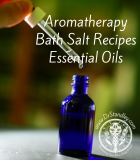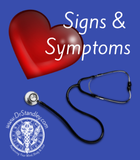
|

|
| Bach Flower Remedies |
Amino Acids A-Z |
Antioxidants A-Z |
Herbs A-Z |
Herbal Preps |
Minerals A-Z |
Vitamins A-Z |
|
|
 |
|
RUE (Ruta graveolens)
DESCRIPTION: An ornamental plant and an herb native to the Balkan Peninsula. It has a tolerance of hot and dry soil conditions. It is also cultivated as a medicinal herb, as a condiment, and to a lesser extent as an insect repellent. POTENTIAL BENEFITS: It is used for digestion problems such as the loss of appetite, upset stomach, and diarrhea. It is also used for heart and circulation problems including pounding heart (heart palpitations). Some people use rue for breathing problems including pain and coughing due to swelling around the lungs (pleurisy). As an anti pain medication it is used for other painful conditions including headache, arthritis, cramps, and muscle spasms; and for nervous system problems including nervousness, epilepsy, multiple sclerosis, and Bell's palsy. Rue is also used for the treatment of fever, hemorrhage, hepatitis, weakness of the eyes, water retention, intestinal worm infestations, and mouth cancer. Some women use rue for menstrual problems, to stimulate the uterus, and to cause an abortion. As a topical application directly applied to the skin to treat arthritis, dislocations, sprains, bone injuries, swollen skin, earaches, toothaches, headaches, tumors, warts and used as an insect repellent. POTENTIAL SIDE EFFECTS: Highly toxic when used as a medicine. Some of the side effects include stomach irritation, changes in mood, sleep problems, dizziness, spasms, serious kidney and liver damage, and death. When applied to the skin, it can cause rash and increased sensitivity to the sun. PARTS USED: The whole herb GENERAL USAGE: Anti-inflammatory, antiviral and antibacterial and helps to protect against free radicals. DISCLAIMER **This web site's goal is to provide you with information that may be useful in attaining optimal health. Nothing in it is meant as a prescription or as medical advice. You should check with your physician before implementing any changes in your exercise or lifestyle habits, especially if you have physical problems or are taking medications of any kind. |
| 314.420.5099 |
| Questions regarding this site: webmaster@drstandley.com |
| Copyright 1999-2026: Dr. Loretta J. Standley - All Rights Reserved. |































